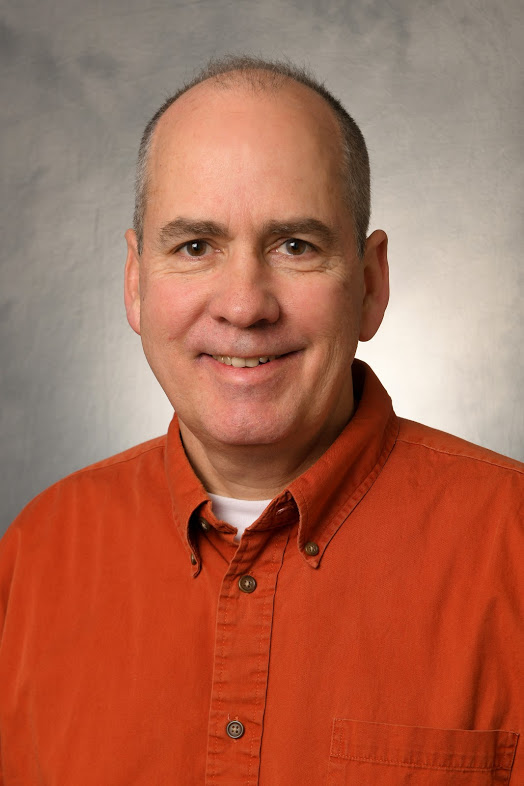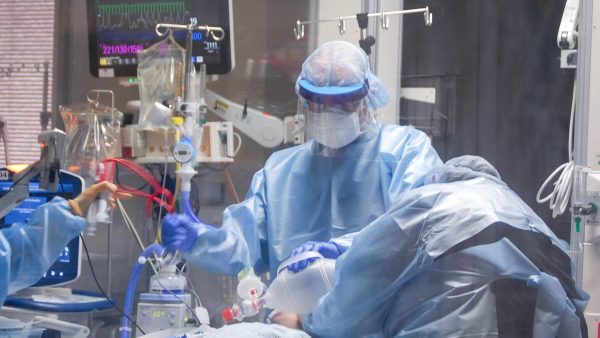Five years out, an ER doc reflects on how he and his colleagues faced down COVID-19
It’s been five years since the first case of COVID-19 was reported in Alabama. The pandemic that followed had profound implications on medicine, society, and our lives, more generally.
Dr. David Bernard was, at the height of the outbreak, an attending physician at the Children’s of Alabama emergency department. We asked him to reflect on his experiences, as he fought to keep his colleagues, patients and family, as well as himself, safe from the disease.
The following conversation has been edited for clarity.
David, you and I know each other socially. I’ve heard you talk about what you saw during the pandemic, working in the children’s ER. Describe the environment in the emergency room.
Fear is the operative word. We were all terrified of what could happen to our patients. And we all started to become scared, when we began to read about the experience of healthcare providers in the countries where it began initially.
This was before you had a vaccination. This is when people, when medical practitioners, were indeed still getting very sick and even dying.
That is correct. There were no treatments. There was no real science identified on how to keep healthcare providers safe during the management of this illness. You know, it was our job, and we all showed up for our job. And Richard that did remind me to talk about the other indelible memory that talked about the environment and that is we were eligible as frontline health care providers day one, when the vaccination became available. It was four or five of us. We got our vaccine. And then we all walked somewhere and cried together, because that was really the first time we started to feel that maybe we wouldn’t die or get seriously ill from this virus, that really maybe there was hope.

And you’ve also got a family, as do many of your colleagues. You went from the hospital, back home. What was that like?
You know, we all developed the things we did to limit our fear. So, some of our colleagues chose to sleep in different bedrooms from their spouses. Some chose to use different bathrooms, and some even chose to live in different locations from their spouses, because of that fear that we would create harm for others. And we all adapted.
To those who do not believe in the severity of Covid or in the abilities of science, what can you offer?
Oh, that’s such a hard question, Richard. No one responds to feeling judged, regarding their decisions, regarding their beliefs and such. And so what I try to offer is what I know from a scientific perspective, what I’ve experienced. You know, the risk of serious harm to someone who has received immunization, or guided timely health care, is much, much, much less than if you had not received it.
How are you now?
I’m okay now. I am partially retired. I’ve spent a lot of time thinking about the past few years and the experience that collectively and individually we had. And I’m extraordinarily happy and proud of the care that myself, my colleagues, both locally [and] across the country, delivered in this extraordinary healthcare crisis. But every single one of us in the society and the world suffered greatly through this pandemic. Everyone’s life was negatively affected. And so I think remembering that, honoring that, realizing that we were all changed through this, is critical for us as a society, country, and world.
Children’s of Alabama is a program sponsor on WBHM, but our news and business departments operate independently.
Here’s how world leaders are reacting to the US-Israel strikes on Iran
Several leaders voiced support for the operation – but most, including those who stopped short of condemning it, called for restraint moving forward.
How could the U.S. strikes in Iran affect the world’s oil supply?
Despite sanctions, Iran is one of the world's major oil producers, with much of its crude exported to China.
Why is the U.S. attacking Iran? Six things to know
The U.S. and Israel launched military strikes in Iran, targeting Khamenei and the Iranian president. "Operation Epic Fury" will be "massive and ongoing," President Trump said Saturday morning.
Sen. Tim Kaine calls on the Senate to vote on the war powers resolution
NPR's Scott Simon talks to Sen. Tim Kaine, D-Va., about the U.S. strikes on Iran.
Iran strikes were launched without approval from Congress, deeply dividing lawmakers
Top lawmakers were notified about the operation shortly before it was launched, but the White House did not seek authorization from Congress to carry out the strikes.
Political science expert weighs in on Iran’s nuclear program in light of U.S. strikes
NPR's Scott Simon speaks to Ariane Tabatabai, the Public Service Fellow at Lawfare, about U.S. attacks on Iran and how President Trump's calls for regime change might be received there.





